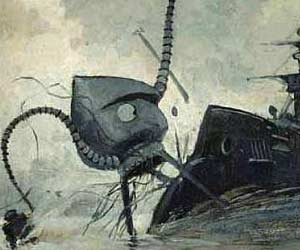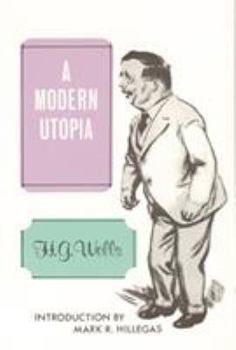A Modern Utopia
Select Format
Select Condition 
Book Overview
A Modern Utopia is one of the first important blueprints for the modern welfare state and an early major statement of Wells's idea of the World State, an idea that is perhaps his greatest contribution to the intellectual history of this century. In this "quintessential utopia," as Lewis Mumford calls it, Wells "sums up and clarifies the utopias of the past, and brings them into contact with the world of the present." The Bison Books edition,...
Customer Reviews
Dystopia or Utopia?
A Utopia for Diverse People
A Utopia for real people
A Modern Utopia Mentions in Our Blog

A hundred years ago, novelist H.G. Wells predicted that science would be "king of the world." Titanic's Jack Dawson may take issue with that claim, but he’d have a tough time disputing the compelling influence Wells had on politics, society, and the future that extended far beyond the literary realm. Considering Wells is one the founding fathers of sci-fi (along with Jules Verne and Edgar Rice Burroughs) and the author of The Time Machine, The Invisible man, The Island of Dr. Moreau, and The War of the Worlds, that's saying something.






